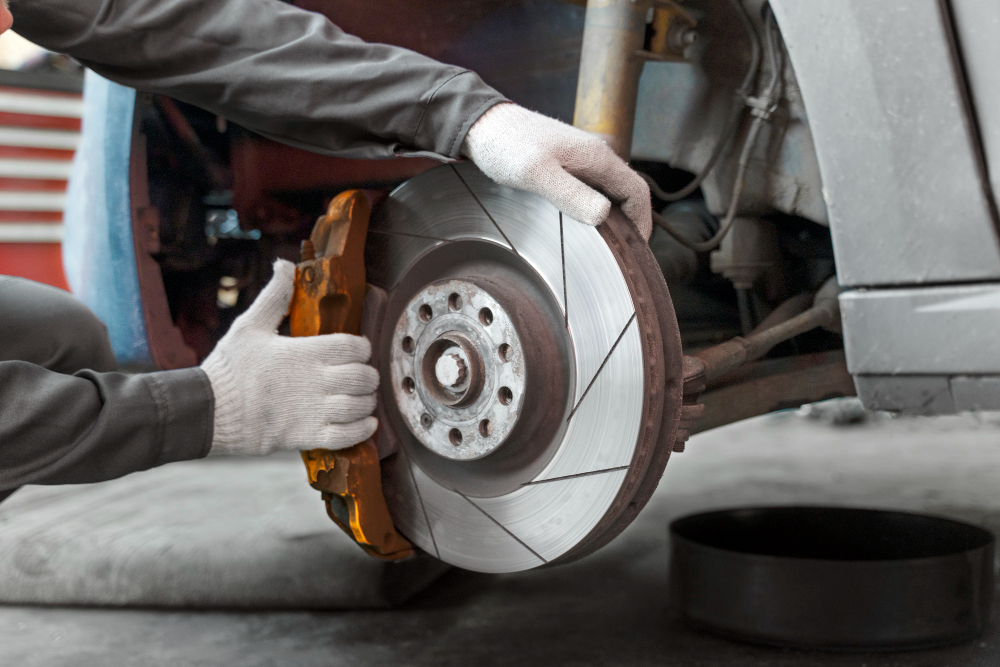
Safe driving is paramount on the roads, and the braking system is one of any vehicle's most critical safety features. A well-maintained braking system ensures you can stop your car quickly and efficiently, preventing accidents and potential injuries. However, brakes are subjected to wear and tear over time, and neglecting their maintenance can lead to dangerous consequences. In this blog, we will explore the signs that indicate your car needs brake repair and provide guidance on addressing these issues to ensure your safety and the safety of others on the road.
1. Screeching or Squealing Noises
When you apply the brakes, screeching or squealing noises are one of the earliest signs that your car's brakes need attention. These noises are often caused by a metal wear indicator on the brake pads, designed to make noise when the pads have worn down significantly. When you hear these sounds, you must have your brakes inspected promptly, as continued driving with worn brake pads can damage the brake rotors and compromise braking performance.
2. Grinding Sensation
If you ignore the screeching or squealing noises, they may progress to a grinding sensation when you apply the brakes. This indicates that the brake pads have worn down completely and that the metal backing plates are now grinding against the brake rotors. Not only does this compromise your car's braking ability, but it also causes significant damage to both the brake pads and rotors. Addressing this issue early can prevent more expensive repairs in the future.
3. Brake Pedal Vibrations
If you feel vibrations or pulsations through the brake pedal when you apply the brakes, it may indicate warped brake rotors. Brake rotors can become warped due to prolonged or aggressive braking, causing an uneven surface. This issue can lead to inconsistent braking performance and a less responsive pedal. Addressing warped brake rotors promptly by resurfacing or replacing them can restore the smoothness and effectiveness of your brakes.
4. Soft or Spongy Brake Pedal
If your brake pedal feels soft or spongy and requires more effort to stop the car, it may be due to air in the brake lines. Air can enter the brake system through a leak or when replacing brake components without proper bleeding. Brake fluid is essential for transmitting the force from the brake pedal to the brake calipers, and air in the lines can diminish this force, leading to reduced braking performance. Bleeding the brake system to remove air and ensure no leaks will restore your brake pedal's responsiveness and firmness.
5. Brake Fluid Leaks
Brake fluid leaks are a serious issue that requires immediate attention. If you notice a puddle of fluid underneath your car or experience a sudden drop in brake fluid levels, it could indicate a leak in the brake system. Brake fluid is hygroscopic, meaning it attracts moisture, which can corrode brake components and compromise their effectiveness. Identify and fix the source of the leak, and be sure to replace any contaminated brake fluid to ensure your braking system remains in optimal condition.
6. Brake Warning Light
Modern cars are equipped with a brake warning light on the dashboard. If this light illuminates, it indicates something is amiss with your brake system. Low brake fluid levels, a malfunctioning brake sensor, or brake pad wear could trigger it. Never ignore the brake warning light; have your brakes inspected by a qualified mechanic to diagnose and address the problem.
7. Pulling to One Side
If your car pulls to one side when you apply the brakes, it could indicate a problem with the brake calipers. Brake calipers press the brake pads against the brake rotors to slow down the wheels. If one caliper is sticking or not functioning correctly, it can cause uneven braking force and lead to pulling. Inspecting and servicing the brake calipers can restore proper braking balance and ensure safer driving.
In conclusion, ensuring your car's braking system is in excellent condition is paramount for safe road driving. Recognizing the signs of brake wear and promptly addressing any issues can prevent accidents and costly repairs. Regular brake maintenance and inspections ensure reliable stopping power and peace of mind on your journeys. Remember, taking care of your brakes means taking care of your safety and the safety of others on the road. Brake responsibly and enjoy worry-free driving!